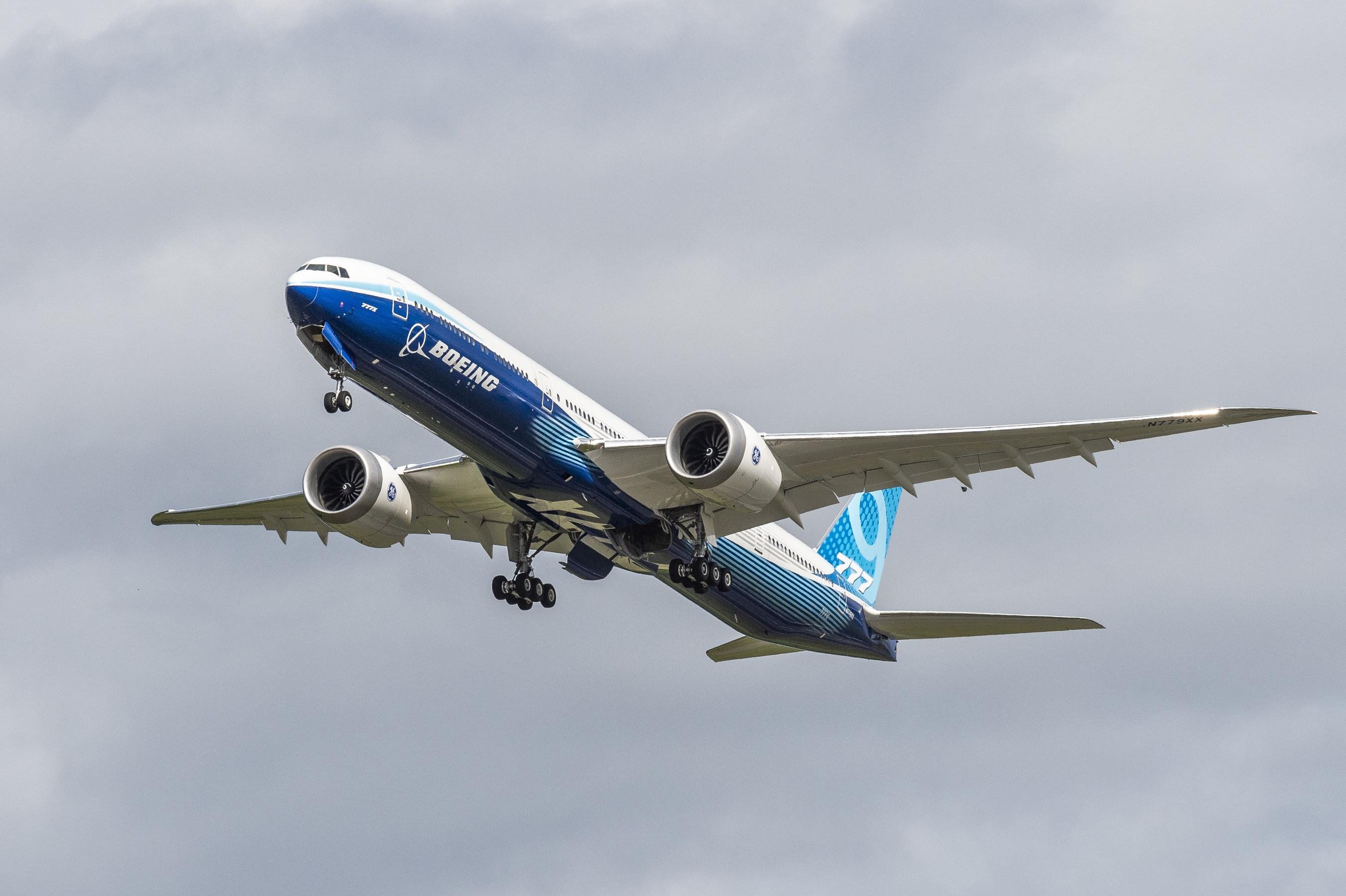
WASHINGTON—A group of internal FAA experts is reviewing aspects of the Boeing 777X and providing feedback to the team tasked with day-to-day oversight of Boeing’s certification work, jump-starting an effort the agency plans to integrate into its aircraft-approval process, Aviation Week has learned.
The Technical Advisory Board (TAB) is early in its work, a senior government official familiar with the project confirmed, with planned in-person meetings being replaced by virtual sessions.
Asked by senior FAA executives to look at several broad areas, the TAB is examining human factors, airworthiness, operations, maintenance and system safety assessments (SSA).
The tasks align with issues highlighted in a special U.S. Transportation Department (DOT) committee report released in January that provided a series of recommendations on how the agency can improve its certification process. Several of them—notably more involvement by human factors experts and a closer look at SSAs—have been cited in other reports that, like the DOT review, were prompted by the two fatal 737 MAX accidents that grounded the fleet.
The FAA has a TAB reviewing the 737 MAX, which has been grounded since March 2019 while Boeing develops new flight control software and training ordered by the U.S. agency and other regulators. The MAX TAB includes non-FAA experts and is reviewing the agency’s own work on Boeing’s proposed changes, including compliance findings.
The 777X review team is acting more like a traditional TAB, providing advice to FAA experts tasked with working the issue, which in this case is the model’s certification, the government official explained.
Crucially, the TAB’s review extends beyond design factors and into the operational environment. For example, the team’s assessment of the highly scrutinized folding wingtips will focus as much on human-factors and operational issues such as flight-deck interfaces and de-icing as the system’s technical makeup.
Such collaboration should help ensure that the FAA’s Aircraft Certification and Flight Standards teams are coordinating sufficiently throughout the aircraft-approval process. A lack of consistent coordination between the two branches and with counterparts at Boeing has been cited as a shortcoming in the MAX certification.
Boeing is working with the TAB, the official said, providing technical documentation and other support to team members. The TAB has about 16 members and taps into FAA expertise on an as-needed basis. The makeup of the team will likely change as it progresses.
In the past the FAA has used TABs and similar advisory groups, but they are usually formed to examine specific issues, often after an aircraft enters service. They are most often made up of FAA specialists, such as chief scientists, that have no day-to-day responsibility on the program being reviewed, and can tap outside expertise as needed.
Long-term, the agency plans to incorporate these regular, independent reviews into its certification process, the official said. The move is part of the changes the FAA is planning in response to the MAX reports and several outstanding recommendations from previous certification reviews.
The FAA’s recently released response to the DOT committee report highlighted several areas of focus. Among them was: “Approach certification holistically by treating the aircraft as complex systems, with full consideration of how all the elements in the operating system interact.”
The response also confirmed it will issue new rules and guidance on SSAs.
The 777X TAB is not on a specific schedule. Its work will not affect the certification timeline of the 777-9, the first model in the new family. Two 777-9s are in flight testing and two more are expected to join them. First deliveries are planned for 2021.





